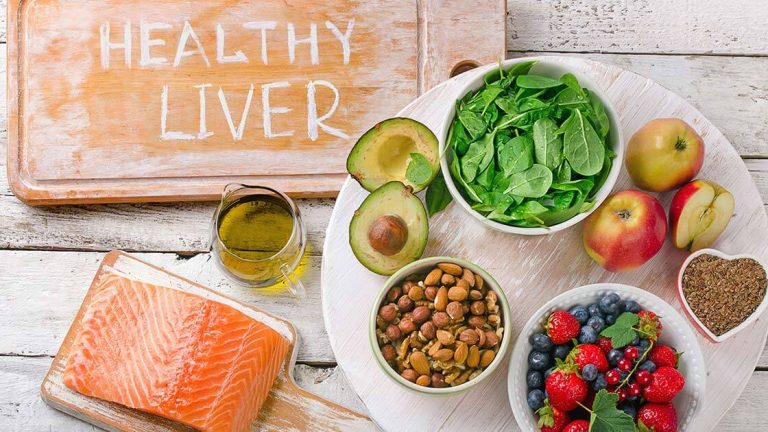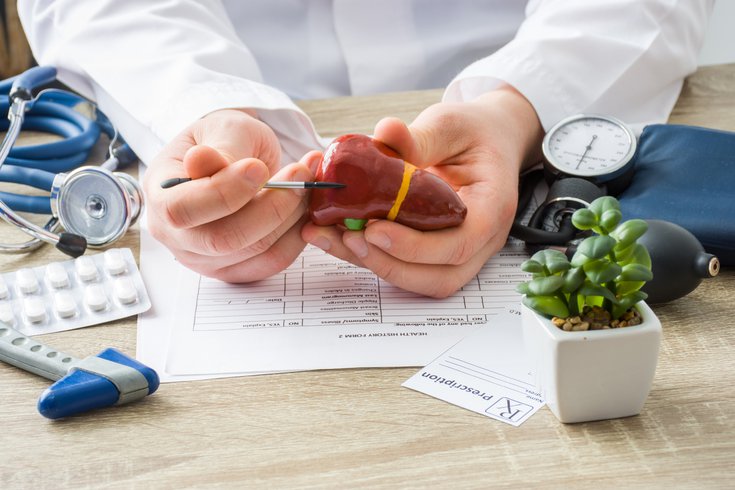
Tips for Liver Health: Keep Your Liver Happy & Healthy
July 9, 2024
The liver is a quiet hero. It filters impurities from the blood, manufactures necessary proteins, and controls sugar levels in the bloodstream. Regrettably, we tend to overlook this important organ until it malfunctions. Fortunately, many steps can be taken at any age to promote a healthy liver and maintain its optimal performance. If you have a healthy liver, are facing any liver-related condition, or are undergoing treatment with our experienced gastroenterologist in Arizona, you can follow the recommendations below to maintain your liver health.
Dietary Choices for a Healthy Liver:
- Have a good diet: Eat fruits & vegetables, whole grains, & lean protein sources. These types of food have the vitamins, minerals, and fiber essential for normal liver function.
- Choose fats that are good for you: Not all fats are the same; select the monounsaturated or polyunsaturated ones found in olive oil, avocados, nuts, and seeds—they can even help safeguard your liver against harm.
- Reduce consuming saturated fat and trans-fat: These unhealthy types can be found in processed foods such as hamburgers, fish chips, sausage rolls, etc., or anything else fried, including bacon sandwiches with butter.
- Work to decrease sugar levels: Don’t give in to temptation too often with desserts or junk food. Overloading sugar will cause weight gain around the abdomen, which then leads directly to higher cholesterol levels.
- Maintain a healthy BMI: Being overweight can increase your chances of acquiring non-alcoholic fatty liver disease (NAFLD). You can improve your BMI (body mass index) by losing excess pounds through proper eating habits and regular physical activity.
Lifestyle Habits for a Thriving Liver:

- Exercise regularly: It is suggested to exercise at least 30 minutes per day with moderate intensity. Exercise also enhances body metabolism, which burns fats stored in the liver.
- Avoid too much alcohol: One of the biggest culprits for liver damage is excessive drinking; thus, try to drink moderately or as advised by a healthcare professional.
- Get adequate sleep: Sleeping well allows the liver to heal faster. Try to get between seven and eight hours of deep rest each night.
- Control stress levels: When people are under chronic stress, their livers and other parts of their bodies suffer. Relaxation methods such as yoga, meditation, or deep breathing can help keep stress in check.
- Avoid toxins: Be conscious of the poisons that come into contact with your body. These include household cleansers, bug sprays, and drugs that could damage the liver.
- Have protected sex: Hepatitis B and C are viruses that specifically target the liver. To avoid them, practice safe sex and get immunized against hepatitis A and B if you haven’t already done so.
- Get checked often enough: Regular checkups will help your doctor monitor how well your liver is functioning, particularly if there are any risk factors for liver disease present.
Liver-Friendly Foods:
- Broccoli, cauliflower, Brussels sprouts, and kale: These cruciferous vegetables are full of antioxidants and phytonutrients that can help you cleanse your liver.
- Salmon, tuna, and sardines: These fatty fish contain omega-3 fatty acids, which reduce inflammation in the liver.
- Beetroot: Beets have betalains, an antioxidant supporting liver detoxification.
- Green tea: This beverage contains antioxidants that can protect liver cells.
- Garlic: It has been proven that garlic protects our liver from diseases and reduces inflammation.
Essential Tips for a Healthy Liver
Your liver plays a vital role in detoxifying your body, aiding digestion, and regulating metabolism. To keep it healthy, maintain a balanced diet rich in fruits, vegetables, and lean proteins, stay hydrated, exercise regularly, limit alcohol, avoid processed foods, and manage weight. Regular checkups and avoiding toxins also help protect liver health.
Your liver works hard every day—don’t wait until problems arise to take action. Book an appointment today to speak with a specialist and get a personalized liver health plan.
Conclusion
At the Digestive Institute of Arizona, we know how crucial it is to care for one’s liver. Our highly skilled gastroenterologists and hepatologists are committed to giving quality treatment to persons suffering from any form of hepatic complications. To ensure that your liver stays healthy all the time, we have various liver health methods for diagnosing and treating it accordingly.
Frequently Asked Questions
1. What are the indications of liver disease?
Ans: Indications of liver disease may differ depending on how serious it is. Common symptoms consist of fatigue, vomiting, loss of appetite, abdominal pain, jaundice (yellowing of skin and eyes), dark urine, and easy bruising. See your doctor for a diagnosis if you have any of these signs.
2. Is there anything I can take to make my liver better?
Ans: Although a few supplements could assist in maintaining the healthiness of one’s liver, it is important that you first speak with a liver expert or a gastroenterologist. Certain medications might react negatively when taken alongside some nutritional additives, or they could cause harm directly to the liver itself.
3. How frequently must I be examined for liver disorder?
Ans: How often you take the liver health function tests depends on your unique risks. If there is a history of liver diseases in your family, if you are obese or regularly drink alcohol, your physician might advise more frequent screenings.
4. Is there anything I can take to make my liver better?
Ans: Yes, you can support your liver by maintaining a healthy lifestyle. Taking antioxidant-rich foods, omega-3 fatty acids, and staying hydrated can help. Green tea, garlic, beetroot, and cruciferous vegetables like broccoli aid liver detoxification. Also, regular exercise, adequate sleep, and limiting alcohol intake are crucial for improving liver health.
5. What foods are good for liver repair?
Ans: Foods that support liver repair include cruciferous vegetables (like Brussels sprouts, kale, and cauliflower), fatty fish (such as salmon and tuna), beetroot, garlic, and green tea. These contain antioxidants, anti-inflammatory compounds, and nutrients that help detoxify, reduce liver fat, and promote cell regeneration.
Also Read:
Bloating: Treatment, Causes, Symptoms, and Foods to Avoid
Stomach Flu vs Food Poisoning: Causes, Prevention, and Recovery Tips
